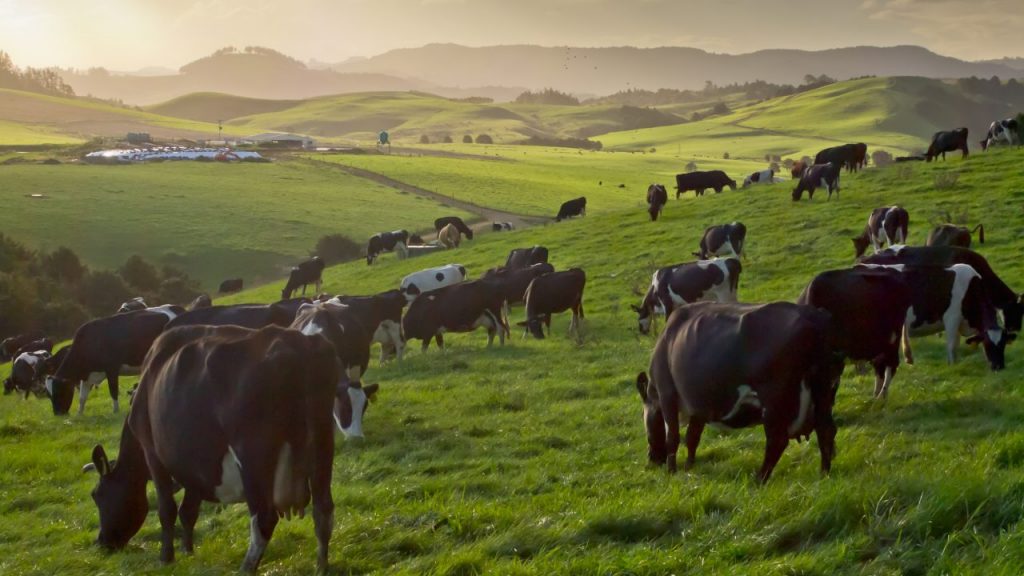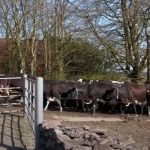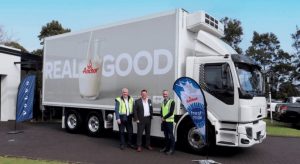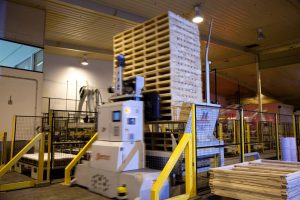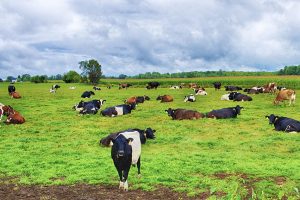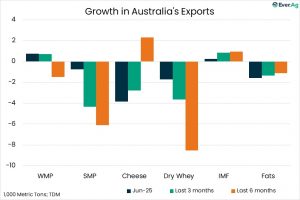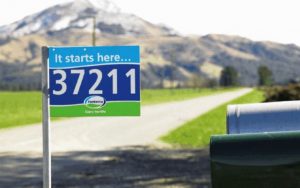
For Galway native Tom Earls, New Zealand is the land of inifinite opportunity for all those dreaming of a fruitful career in agriculture and the contemporary version of what the US represented to his uncles and aunts back in the seventies.
The 38-year old has developed an exemplary dairy enterprise in the North Island of New Zealand, which he fashioned from the ground up, alongside his wife of ten years and business partner, Thérese Earls.
Earls first moved to New Zealand in 2008, after graduating as a qualified surveyor and valuer just as the global financial sector crashed.
Having grown up on a family suckler farm in Loughrea, Co. Galway, he developed an aptitude for farming, despite his father’s best efforts.
Speaking about his background, Earls said: “My family’s been on the same farm for a few hundred years, but my father never wanted me to become a farmer.
“While I didn’t go to agricultural college, I was always at home helping out on the farm while I was studying.”
Once realising that “it wasn’t a great time” to pursue a career in property economics, he decided to follow his best friend – and fellow farming enthusiast – to New Zealand, where they both found jobs as agricultural contractors.
At a time when social media was non-existent, Earls and his friend found most of their early jobs through word of mouth or serendipitous encounters.
Some of these encounters occurred in local pubs, or random visits to farms while passing through an area.
During this time, Earls met his wife Thérese, a “Kiwi”, who was raised on a dairy farm and who Earls said is responsible for teaching him everything he knows about the industry.
“I grew up hating dairy farmers – it’s the running joke among my friends because I always used to say that a black and white cow will never come through my gate.
“My wife is as big a part of the business as I am, I trust her instinct as much as I trust mine and to be honest with you, she’s probably a better farmer than I. Everything I’ve learned, I learned off her because I wasn’t a dairy farmer before I met her,” he said.
Dairy farming in New Zealand
After three years of contracting, the young couple started lower order sharemilking, which entailed running a 550-cow farm, costs included, in return for 25% of the milk check.
Two years into this arrangement, the Earls were presented with a lucrative 50/50 sharemilking opportunity, which culminated in an even split of milk profits.
Under a 50/50 sharemilking agreement, the sharemilkers provide the herd, labour, and machinery, as well as covering the running costs of the business, in exchange for use of the land owner’s property and buildings.
However, with milk prices at a record low in New Zealand, the couple decided to pack their bags for Ireland in 2013, to compare prospects between the two countries.
After a year spent at home, the Earls quickly realised that New Zealand afforded the couple far more opportunites than Ireland ever could, even in spite of Tom’s prospective inheritance.
Satisfied with their choice of settling ‘down under’, the couple returned to New Zealand in 2014, where they took on employment as contract milkers, the salary of which was based on the quantity of milk solids produced by the herd.
Contract milkers
At that point, the couple had 50 cows leased out to other farmers, and over NZ$100,000 in savings, which they had intended to spend on their wedding.
However, they to decided to cash in their savings on the 50 cows when their employer offered them the chance to bring their own livestock into the herd.
“We spent the NZ$100,000 that we had saved for our wedding to buy the 50 cows. Then we just went and got married, just the two of us, without telling anyone. That’s how romantic we are,” he laughed.
Since then, the couple continued to grow in scale, expanding both the size of their herd and their savings, until they eventually purchased a farm of their own five years ago, complete with a herd of 450 cows.
In addition to the home farm, which now hosts 520 cows, the couple also operate a 50/50 share milking job five minutes down the road from them, which comprises a herd of roughly 700 cows, as well as leasing a dry stock block, where they rear calves and cut silage.

With over 1,200 cows, five employees and two children under their care, Earls attributed his family’s success to a confluence of grit, determination, an aptitude for strategy, and good fortune.
“It’s a business, and that’s what I love about it. I always say that I’m not the best farmer in my district, but I’m up there among the best businessmen and I’d challenge anyone who may suggest otherwise,” Earls said.
Generous in spirit, Earls is also committed to sharing his knowledge, expertise, and personal journal to help others achieve their aspirations, including his employees and the young farmers he meets when he participates in panel discussions aimed at ag students.
“The way I see it, there’s no point in me making money and being successful, and the guys [his employees] not understanding it. We sit them all down and explain how we’re making money and why we’re making money.
“We explain the equity growth in stock, the equity growth in our land value, how we’re leveraging against stock and against land value, and we do that in six-month intervals,” he said.
Earls views his bank manager and accountant as integral parts of the business’ “brain circle”, who he bounces ideas off and who the Earls employ to help actualise their goals, instead of impeding them.
“I could ring my bank manager at 9 o’clock at night and ask him any question I wanted,” he said.
Earl’s admitted that it isn’t always plain sailing, particularly when it comes to battling the elements.
“If you’re farming in New Zealand, you have to be more resilient, it’s one of our key business statements.
“We’ve probably had the worst dry period here in I reckon, 40 years. It rained on December 15 and we didn’t see rain again until last week (early April). That should have been stressful but I wasn’t stressed because we were prepared for it.
“We do feed budgets every December in case we might not get rain for 60 days, despite the fact that it may only happen once every 15 years and, because we built a system that could cope with drought, we’re only down 1% for the season,” Earls outlined.
With two young children under five and an inimitable work ethic, Earls admitted there is very little room for downtime in the week.
But while his current schedule revolves around farming, the ambitious Irishman aspires to retire by 48, which he claims is typical for New Zealand farmers.
“People have said to us before that we have no life and we probably don’t from the outset. But the business we’re in is our life. If this doesn’t consume us, it’ll fail.
“I could look back in five years time and say that was an insane statement, but that’s kind of how I feel now.
“To me, New Zealand is what the US was to my uncles that left Ireland in the seventies and eighties. There’s so much opportunities, you just have to look for them in the right place,” Earls explained.
You can now read the most important #news on #eDairyNews #Whatsapp channels!!!
🇺🇸 eDairy News INGLÊS: https://whatsapp.com/channel/0029VaKsjzGDTkJyIN6hcP1K
